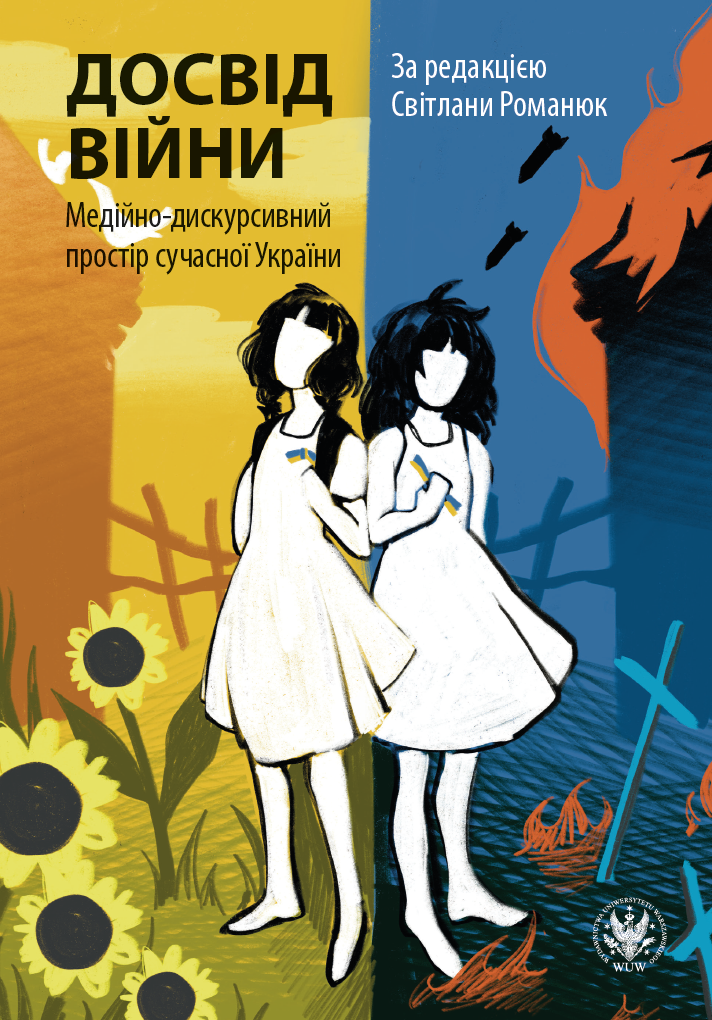Лінгвостилістичні та прагматичні особливості неодериватів і неографізмів періоду російсько-української війни
Linguo-Stylistic and Pragmatic Features of Neo-Derivatives and Neographisms of the Period of the Russian-Ukrainian War
Author(s): Natalia Kostusiak
Subject(s): Cultural history, Theoretical Linguistics, Applied Linguistics
Published by: Wydawnictwa Uniwersytetu Warszawskiego
Keywords: neo-derivative; neosemanticism; neographism; vocabulary; lexical meaning; noun; adjective; mass media language; Ukrainian language
Summary/Abstract: The paper characterizes the linguistic toolkit of contemporary journalistic-military discourse, which has undergone noticeable shifts due to external factors. An important indicator of dynamism is identified in structurally, semantically, and graphically modified markers of innovation, which play a crucial role in covering current events and psychologically charged situations. At the same time, these markers serve pragmatic and intentional goals for journalists, creating effects of sensationalism, unusualness, and unpredictability, thereby adding irony, sarcasm, emotional evaluation, and expressive nuances to media content. It is noted that improvisation and creativity in formal representation are provided by lexical units that have undergone an expansion of their semantic structure. A significant portion of non-derivatives and neologisms in media texts on military themes consist of enemy designations, which, although beyond the norms inherent in journalism and literary writing, vividly represent disgust, hatred, and disdain towards Russian aggressors, imparting mocking-humorous and contemptuous tones to the texts. Descriptions are given of contaminated linguistic units (moskolota), complex words formed with two evaluative nouns (ordyntsi-okupanty, ordyntsi-moskovyty), and pejoratively connotated adjectives (moskovsko-fashystskyi and others). The focus is on neosemanticisms, within which the adjectival derivative miasnyi is explored. It appears in phrases like miasni khvyli and miasnyi shturm predominantly in the context of destroying Russian occupiers. Among secondary epithets with syncretic content, disparaging-ironic identifiers for the Belarusian president are analyzed, emphasizing his negative traits in a degrading fashion, even to the point of vulgarizing the text. It is clarified that the noun bulba, along with its related attribute bulbashnyi and the latter’s synonymous correlate kartoplianyi, are components of secondary nominations for Alexander Lukashenka (bulbashnyi posipaka, kartoplianyi dyktator, kartoplianyi fiurer, kartoplianyi los, kartoplianyi khrobak). The adjective kartoplianyi imparts a contemptuous tone, functioning as a component in the names of the Belarusian state (kartopliana kraina). In the context of linguistic transformation, the names of states, their leaders, and other individuals involved in the military aggression in Ukraine are analyzed. These names are often stylized with lowercase letters in mass media to express scorn and contempt. Their stylistic features, emotional connotations, and communicative-pragmatic functions are examined.
Book: Досвід війни. Медійно-дискурсивний простір сучасної України
- Page Range: 43-58
- Page Count: 16
- Publication Year: 2024
- Language: Ukrainian
- Content File-PDF

